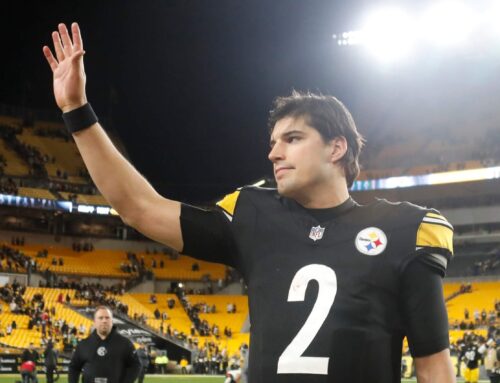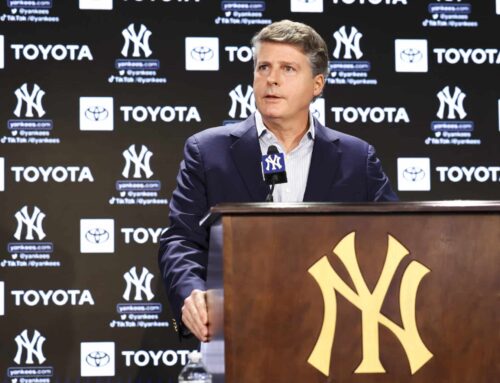It has been an interesting week for coaches in international sport.
Arguments between coach and player in the huddle. A player telling her coach to shush. Guaranteeing a win in the biggest game of the week and then saying the team wasn’t ready. And, finally, a new coach calling his superstars out in a pressure-filled moment.

These are turbulent times. As athletes gain more power and we pull away from the command-and-control coaching style, it places even more pressure on coaches to effectively lead their athletes, teams and programs. X’s and O’s will always separate the bad from the good in sport, but elite leadership raises the ceiling from good to great. I believe those coaches who rise to the top over the next decade will do it on the back of a horse called LEADERSHIP.

Back to the week that was. From a distance, there is something inconsistent about the way LSU head football coach, Brian Kelly, leads. I felt the same about him during his time at Notre Dame. Kelly essentially guaranteed a win in Tallahassee versus Florida State – the most significant contest in North American team sport this past weekend. How do you guarantee a win and then say you weren’t prepared after an upset loss?
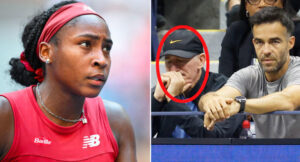
I’ll declare that I’ve spent time with tennis coach and commentator Brad Gilbert. He can talk. It is a gift and maybe a curse. His current flagship pupil is Coco Gauff, and she is playing well! This past weekend, she shushed him during a big match. Putting the coach in his place. Gilbert was also accused of making comments to Coco’s opponent that was intended, supposedly, to throw her off her game. Odd behaviour for a professional coach.

At the basketball World Cup, NBA veteran Dennis Shroder was in the midst of an argument with a teammate when his national team coach, Gordie Herbert, “encouraged” him to sit down during a team timeout. His encouragement included a tug on the arm and some harsh language. Dennis did not respond well, nor did he sit down. The Germans are undefeated at the World Cup and play the USA in the Semi’s. I’ll also declare that I know Gordie. He’s a great basketball coach and a even better person.

Finally, at the same World Cup event, Canadian national team coach Jordi Fernandez, called out a couple of his highest profile players after a loss to Brazil. This one really caught my attention. I was surprised given that he had just been named the head coach a few weeks earlier and, I figured, that direct public feedback, of the critical variety, would not be the best strategy in that moment. Well, the Canadians went on to win the next game and qualify for the Olympics for the first time in 24 years. They play the Serbians in the semi’s!
How are these moments connected? For me, in part, it is the essential leadership pillar of clarity. Coco shushes Gilbert to turn the noise down to simply things. Jordi declares, in no uncertain terms, what he saw from his best players. Kelly’s not so clear before and maybe a lot more clear after. And, Gordie simply wanted to make the most out of time with his players.
More of my individual and organizational clients are committing time on projects to helping themselves and their organizations create greater clarity. It is a noticeable shift to get people literally on the same page. In their principles and expectations. With their plans. In how they provide feedback. Creating clarity isn’t always easy for humans, particularly when we are trying to maintain harmony and fear reprisal. In sport, with athletes having more knowledge and power than ever before, it makes being clear even harder. Not easy work, but entirely necessary. Interestingly, one of the Olympic coaches I work with recently decided that the strategy work he does in his job isn’t in fact strategy, but rather it is clarity. Bin the concept of a strategic plan and insert the new age Plan for Clarity!
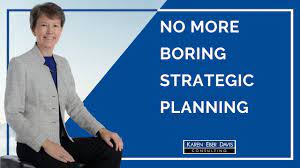

If creating clarity is a foundational leadership principle that coaches must master, it is “clear” that Brian Kelly and Brad Gilbert struggled to find their harmonious relationship with this concept over the past week. Germany’s head coach, Gordie Herbert, might have chosen a different strategy to create clarity, but his intent was pure. He wanted to have a productive timeout during a critical juncture in a match. Of the four coaching situations, the one that caught me off guard to the greatest degree was Jordi Fernandez calling out his players. The reality is, he was the coach who most strongly aligned to the principle of clarity.
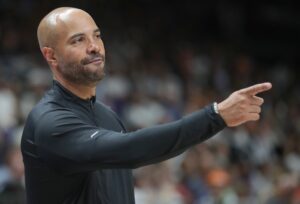
In the moment, Jordi did not present his feedback as a personal attack in any way, as I look back on it. He simply described what he saw relative to what was required to achieve the team goal. My knee jerk reaction was that this was a massive risk. Clearly wrong! Again!
He was brave enough to provide a gift to his players at an historic moment in time.
Leadership guru, Brené Brown declares, famously, that “clarity is kindness”.
For coaches, today, “clarity is required” in order to achieve greatness.

